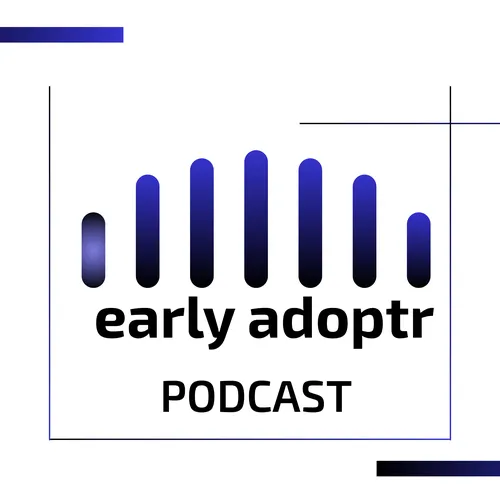Business Data for AI: How to Turn Customer Emails and Invoices Into Competitive Advantage
- Author
- Early Adoptr
- Published
- Wed 03 Sep 2025
- Episode Link
- https://shows.acast.com/early-adoptr/episodes/business-data-for-ai-how-to-turn-customer-emails-and-invoice
In this episode, Kyle and Jess tackle the biggest myth in AI adoption: "I don't have enough data." The reality? Every business owner is sitting on a goldmine of untapped information - they just don't know how to see it or use it. From email threads to customer support tickets to that "Bible spreadsheet" you've been updating for three years, your business is generating incredible amounts of data every single day.
We break down the three types of data your business already has, explain how to actually extract it from your systems without needing a computer science degree, and show you exactly what AI does with all that information once it gets its hands on it. Plus, we dive into the practical side - how connecting different data types can finally prove whether your marketing campaigns actually drive sales, not just open rates.
Whether you're drowning in spreadsheets, wondering how to make sense of years of customer emails, or ready to turn your data into your competitive advantage, this episode will change how you think about every business interaction you have.
What You'll Learn:
- The three types of data every business has (and why 80% of yours is probably untapped)
- How to extract data from your systems: CSV exports vs APIs vs the new Model Context Protocol (MCP)
- The four-step process AI uses to transform messy business information into actionable insights
- Why combining operational data with customer experience data reveals game-changing patterns
Data Terminology:
API (Application Programming Interface) - A documented doorway that lets different software systems ask each other for specific information securely and automatically.
CSV (Comma Separated Values) - A simple file format that stores data in rows and columns, like a basic spreadsheet that any system can read.
ETL (Extract, Transform, Load) - The three-step process of pulling data from different places, cleaning it up, and putting it somewhere useful.
JSON - A standardized format that systems use to exchange data in a way that's both human-readable and computer-friendly.
LLM (Large Language Model) - AI systems like ChatGPT or Claude that can read, understand, and generate human-like text.
Mapping - The process of matching data fields from one system to another (like making sure "email" doesn't end up in the "first name" column).
MCP (Model Context Protocol) - An emerging standard that lets AI systems directly access live data from your business tools without manual exports.
Metadata - "Data about data" - information like timestamps, file sizes, who created something, or when it was last modified.
RAG (Retrieval-Augmented Generation) - How AI finds the right pieces of information from a large collection of documents to answer your questions.
Semi-Structured Data - Information that has some organization but isn't perfectly clean - like that messy spreadsheet with random notes and merged cells.
Structured Data - Information organized in neat rows and columns, like your CRM records or accounting software.
Unstructured Data - Messy information like emails, documents, audio recordings, and PDFs that doesn't fit into neat categories.
Webhooks - Event triggers that automatically push data from one system to another when something specific happens (like a new customer signup).
If this episode helped you realize you're not data-poor after all, share it with another business owner still thinking they need enterprise-level infrastructure to compete with AI.
Get in touch with Early Adoptr: [email protected]
Follow Us on Socials & Resources:
IG: https://instagram.com/early_adoptr
TikTok: https://tiktok.com/@early_adoptr
YouTube: https://www.youtube.com/@early_adoptr
Substack: https://substack.com/@earlyadoptrpod
Resources: https://linktr.ee/early_adoptr
Hosted on Acast. See acast.com/privacy for more information.
